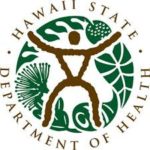The State Department of Health has identified four additional cases of monkeypox in the following individuals:
- A Hawaiʻi Island resident whose case is related to community exposure
- An Oʻahu resident whose case remains under investigation
- An Oʻahu resident whose case remains under investigation
- A Maui resident whose case remains under investigation
This brings the state’s total case count to 22. DOH continues to conduct contact tracing and follow-up with all reported cases.
The JYNNEOS vaccine, which is a two-dose series administered 28 days apart, is available across the state to Hawaiʻi residents 18 and older. Vaccination eligibility includes:
- Close contact in the last 14 days with a person with known or suspected monkeypox infection;
- Gay, bisexual, and other men who have sex with men and transgender individuals who have multiple or anonymous sex partners;
- Persons with severe immune compromise (e.g., advanced or poorly controlled HIV infection, active cancer treatment, high-dose steroids) or certain skin conditions, such as eczema; AND who have a household member or sex partner at high risk for monkeypox.
DOH and healthcare providers in each county who directly reach individuals at higher risk of monkeypox exposure continue to vaccinate eligible individuals. Individuals eligible for vaccination can make an appointment by contacting:
| Provider/Organization | Area Served |
| Hawaiʻi Department of Health
Phone: (808) 586-4462 Online: health.hawaii.gov/docd/mpxvax Kauaʻi residents can also call (808) 241-3495 |
Statewide |
| Malama I Ke Ola
Phone: (808) 871-7772 |
Maui |
| Waianae Coast Comprehensive Health Center
Phone: (808) 427-0442 |
O‘ahu (sites in Waianae and Kapolei) |
| Hawaiʻi Health & Harm Reduction Center
Phone: (808) 521-2437 |
O‘ahu (site in Honolulu)
|
The risk to most Hawaiʻi residents remains low. Monkeypox is mainly spread through close, intimate contact with body fluids, lesion material, or items used by someone with monkeypox. Monkeypox may be spread through large respiratory droplets. These droplets generally cannot travel more than a few feet, so prolonged contact is required.
Nationwide, the current cases are primarily spreading among social networks of gay, bisexual, and other men who have sex with men. In Hawaiʻi, at least some of the cases have been reported among gay or bisexual men. However, anyone who has close contact with someone with monkeypox is at risk of infection, regardless of sexual orientation or gender identity.
Individuals with monkeypox symptoms, including flu-like symptoms, swollen lymph nodes, or new or unexplained rash or sores, should immediately contact their healthcare provider. Testing and treatment are available through healthcare providers.
